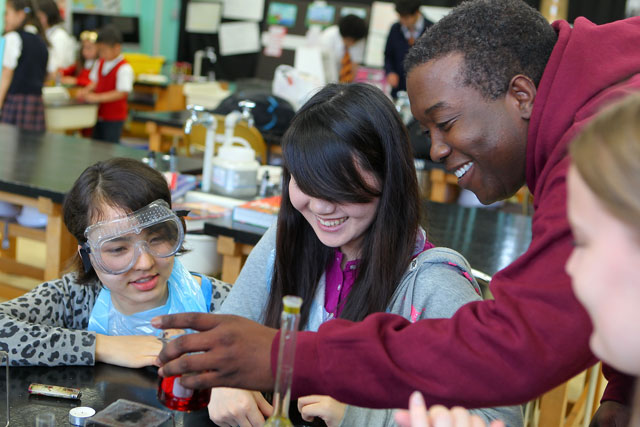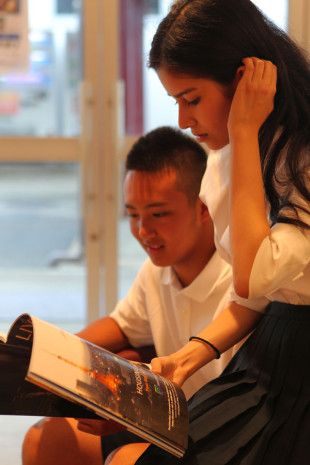Often when we think of international schools, we imagine a western education transplanted into a foreign country, as Ken Sell, the new Head of School explains. But as times change and cultures mix in an increasingly international age, Aoba-Japan aims to redefine what it means to be an international school.
“I think a truly international education is one that engages the local community with the expat community to understand the world within the context of their local, host country,” Sell explains. “Internationalism is having an understanding of where you sit in the world, in relation to the world.”
Aoba also believes the best international education creates and encourages students to become global leaders. While one might think of a figure like Barack Obama when they hear the world “global leader,” Sell says, the school is not set on necessarily producing superstars of diplomacy; rather, they aim to produce peaceful people with the characteristics of tolerance, understanding, diversity, problem solving and empathy.
Aoba-Japan International School implements what’s known as a conceptual curriculum, communicated through inquiry-based teaching, and carried out through the IB, or International Baccalaureate program. Within two years, this program, an internationally recognized system that encourages intellectual, personal, emotional and social skills to live, learn and work in a rapidly globalizing world, will be fully integrated into the school.
Within this program, there is flexibility for teachers to design their curriculum around the students themselves. This doesn’t make things as easy as it could be for teachers who are following set lesson plans, as Sell mentions, but Aoba’s teachers are a different breed: “We have a very dedicated staff, willing to learn and willing to participate, while offering multiple forms of activities and opportunities both inside and outside of the school.”
Greg Culos, Director of Development, explains that this inquiry-based concept is not limited to the students, and that collaboration among staff members is key. Teachers engage in a circle of action research: “When you finish a unit of work, you have to reflect on it, record the notes of how you would change it, so whether it is you or the next person, they have that body of knowledge there that will allow them to look at the curriculum and redesign it in relation to the students. We have to adopt a curriculum across the board that’s meaningful and achieves these goals of becoming internationally minded.”
The final two years of the IB program is also when the students learn to do what, in most educational systems, is taught in the first year of university. Students learn to conduct independent research, and truly experience and understand that studying is based on inquiry. Particularly in a place like Japan, where educational methods are tightly structured, Aoba puts an emphasis on not just searching for the “correct” answer, but asking useful questions and coming up with ways to answer those questions, while gaining the confidence to speak up about their process of inquiry.
Aoba’s core values also stress the importance of encouraging parents to participate in their children’s education through workshops that demonstrate how Aoba’s curriculum works, and also engaging with the wider community through after-school programs and summer camps that connect with members of the local neighborhood. These activities not only build a true hub of a community filled with both Aoba students and locals, they also feed back to Aoba’s core value of creating global leaders.
From international students coming from abroad, to domestic, Japanese students looking for an international environment, Aoba truly aims to embody what it is to be an international community involved in education.
For more information about Aoba-Japan International School please visit the official website: www.aobajapan.jp










